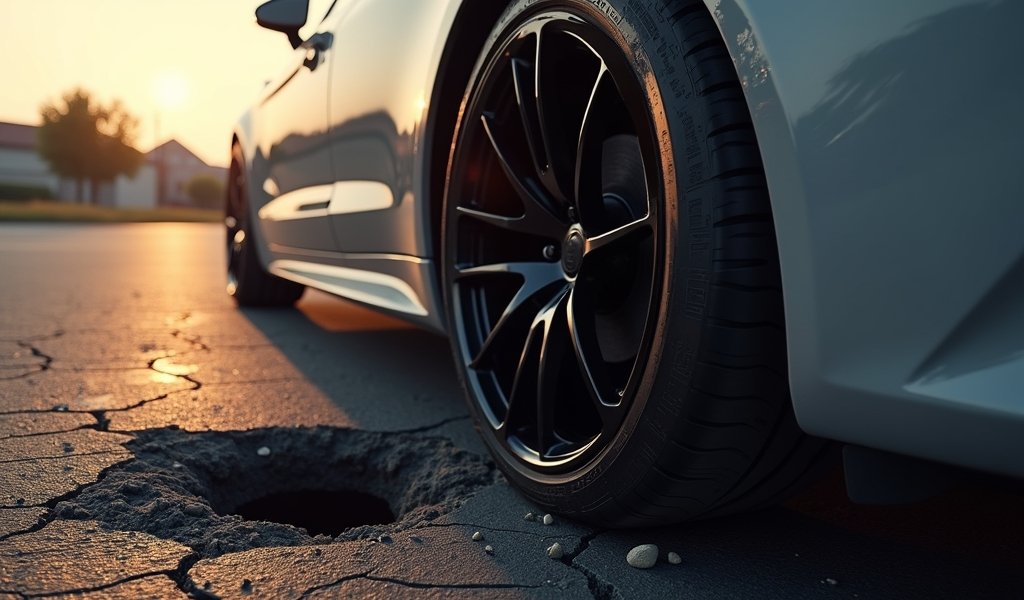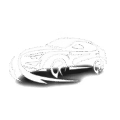Overview
This article provides expert advice on selecting custom rims and wheels, covering critical factors like driving style, proper fitment, material selection, budget considerations, and maintenance practices. The guide emphasizes that quality wheels are an investment in both aesthetics and performance, recommending consumers work with knowledgeable professionals who understand their specific vehicle needs rather than making decisions based solely on appearance.
Table of Contents
- Understanding Custom Rims and Wheels: What You Need to Know
- Finding a Quality Custom Rims and Wheels Shop
- Tip 1: Consider Your Driving Style and Vehicle Type
- Tip 2: Understanding Fitment: Size, Offset, and Bolt Pattern
- Tip 3: Material Matters: Choosing Between Alloy, Steel, and Forged Wheels
- Tip 4: Budget Considerations: Balancing Cost and Quality
- Tip 5: Maintenance Tips for Your Custom Wheels
- Conclusion: Rolling with Confidence
- Frequently Asked Questions
Understanding Custom Rims and Wheels: What You Need to Know
When it comes to personalizing your ride, few modifications make as bold a statement as custom rims and wheels. Here at Knows Your Car in Los Angeles, we’ve seen firsthand how the right set of wheels can transform not just a vehicle’s appearance, but its performance too. Custom wheels aren’t just about looks—they’re about creating a driving experience that’s uniquely yours.
As mechanics who’ve worked on thousands of vehicles, we understand that navigating the world of custom rims and wheels shops can be overwhelming. With countless styles, sizes, and materials available, how do you know what’s right for your vehicle? That’s exactly what we’re here to help with.
The aftermarket wheel industry has evolved tremendously over the years. What was once a simple aesthetic choice has become a complex decision involving performance considerations, material science, and precise fitment specifications. Whether you’re looking to boost your vehicle’s performance or simply turn heads on Sunset Boulevard, choosing the right custom wheels is crucial.
In this guide, we’ll share our professional insights to help you make an informed decision when visiting a custom rims and wheels shop. We’ll walk you through everything from understanding your vehicle’s specific needs to maintaining your new wheels for years to come. Let’s get rolling!
Finding a Quality Custom Rims and Wheels Shop
Before diving into our pro tips, let’s talk about how to find a reputable custom rims and wheels shop in the first place. This step is often overlooked, but it’s perhaps the most important part of your wheel-buying journey.
A quality wheel shop should offer more than just a wide selection—they should provide expertise and guidance. At Knows Your Car in Los Angeles, our parts department specialists pride themselves on asking the right questions about your vehicle and driving habits before making recommendations. This approach ensures you get wheels that not only look great but perform optimally for your specific needs.
When evaluating a custom rims and wheels shop, look for these qualities:
- Knowledgeable staff who ask about your vehicle specs and driving habits
- A diverse inventory representing different price points and styles
- Proper equipment for mounting, balancing, and alignment
- Positive customer reviews and testimonials
- Warranties on both products and installation
- Transparent pricing with no hidden fees
Don’t rush this decision. Take time to visit multiple shops, ask questions, and gauge their expertise. A reputable shop won’t pressure you into making an immediate purchase—instead, they’ll educate you and help you explore options that make sense for your vehicle and budget.
Remember, the relationship with your wheel shop doesn’t end after installation. You’ll likely return for maintenance, rotation, or even future upgrades. That’s why finding a shop that values long-term customer relationships, like our team at Knows Your Car (reach us at (123) 456-7890), makes all the difference in your overall satisfaction.

Tip 1: Consider Your Driving Style and Vehicle Type
One of the most common mistakes I see at our Los Angeles shop is customers choosing wheels based solely on aesthetics. While appearance is certainly important, your driving habits and vehicle type should be the primary factors guiding your decision when visiting a custom rims and wheels shop.
Let me break this down simply: a wheel that works perfectly for a luxury sedan cruising down Wilshire Boulevard might be completely wrong for an SUV tackling weekend trails in the San Gabriel Mountains. Your wheels need to complement not just how your vehicle looks, but how you actually use it.
For daily commuters, lightweight alloy wheels can improve fuel efficiency and provide a smoother ride. Choosing the right wheel size is crucial here—too large, and you might sacrifice comfort and efficiency; too small, and you could impact handling.
If you’re driving a performance vehicle, you’ll want wheels that can handle the heat—literally. High-performance driving generates more heat in your brakes, and proper wheel design helps dissipate that heat. According to Tire Rack’s technical research, well-designed performance wheels can improve brake cooling by up to 15%.
For truck and SUV owners, durability should be your primary concern. If you regularly drive off-road or carry heavy loads, you’ll need wheels with higher load ratings and possibly a more conservative size that allows for thicker tire sidewalls to absorb impacts.
Here’s a quick reference guide based on vehicle types:
- Compact/Economy Cars: 15-17″ lightweight wheels for efficiency
- Sedans/Family Cars: 17-19″ wheels balancing appearance and comfort
- Sports Cars: 18-20″ performance-oriented wheels with appropriate width for handling
- SUVs/Crossovers: 17-22″ depending on model, with attention to load ratings
- Trucks/Off-road Vehicles: Durable wheels with proper backspacing for clearance
At Knows Your Car, we always start by asking about your driving habits. Do you drive primarily in city conditions? Highway commutes? Weekend adventures? These questions help us guide you toward wheels that will enhance your specific driving experience, not just make your vehicle look good in a parking lot.
Tip 2: Understanding Fitment: Size, Offset, and Bolt Pattern
When visiting a custom rims and wheels shop, understanding wheel fitment is absolutely critical. I’ve seen too many customers at our Los Angeles shop learn this lesson the hard way—buying gorgeous wheels that simply won’t work with their vehicle. Let’s break down the key elements of proper wheel fitment so you can shop confidently.
First, let’s talk wheel size. This is typically expressed as diameter × width (for example, 18×8.5 inches). While it’s tempting to go much larger than your stock wheels, dramatic size increases can negatively impact performance, fuel economy, and even safety. A good rule of thumb is staying within 1-2 inches of your factory diameter.
Offset is perhaps the most misunderstood yet crucial fitment factor. Measured in millimeters, offset is the distance between the wheel’s mounting surface and its centerline. Positive offset means the mounting surface is toward the outside of the wheel (common in front-wheel-drive cars), while negative offset pushes the wheel outward from the vehicle (often seen in trucks and some performance applications).
Getting offset wrong can cause serious issues. Too much positive offset can cause the wheels to rub against suspension components. Too much negative offset can make wheels stick out beyond fenders, potentially violating local laws and causing dangerous spray in wet conditions. The Wheel Size database research shows that incorrect offset is responsible for nearly 40% of wheel fitment problems.
Then there’s the bolt pattern—the configuration of lug holes that match your vehicle’s wheel hub. This is typically expressed as the number of lugs × the diameter of the circle they form (like 5×114.3mm). This must match your vehicle exactly; there’s no room for compromise here.
Other important fitment considerations include:
- Center bore (the hole in the middle of the wheel that centers it on your hub)
- Load rating (ensures the wheel can handle your vehicle’s weight)
- Hub-centric vs. lug-centric mounting
- Brake caliper clearance (especially important with performance brakes)
At Knows Your Car, we use specialized fitment software to ensure perfect compatibility with your vehicle. We’ll even consider your seasonal tire choices when recommending wheels, as tire dimensions can significantly impact overall fitment.
Remember: proper fitment isn’t just about avoiding rubbing or clearance issues—it’s about maintaining your vehicle’s handling characteristics, brake performance, and safety systems. Don’t compromise on getting this right.
Tip 3: Material Matters: Choosing Between Alloy, Steel, and Forged Wheels
When you step into a custom rims and wheels shop, you’ll quickly discover that wheel materials significantly impact everything from performance and durability to price. At Knows Your Car in Los Angeles, we help customers understand these differences to make choices aligned with their driving needs and budget.
Let’s start with steel wheels—the workhorses of the wheel world. They’re heavy and not particularly flashy, but they’re incredibly durable and the most affordable option. For work trucks or vehicles that face rough conditions, steel wheels can take a beating and often be bent back into shape if damaged. However, their weight penalty impacts acceleration, braking, and fuel economy.
Cast alloy wheels represent the most common aftermarket option. These are made by pouring molten aluminum or aluminum alloy into a mold. They’re significantly lighter than steel, which improves handling and efficiency. They also dissipate brake heat more effectively and come in countless designs. The downside? They’re more brittle than steel and can crack rather than bend when damaged.
At the premium end of the spectrum are forged aluminum wheels. Unlike casting, forging involves compressing aluminum under tremendous pressure, creating a stronger, more densely grained metal structure. The result is a wheel that’s both lighter and stronger than cast alternatives. The engineering behind this process is fascinating—according to research from the Society of Automotive Engineers, forged wheels can be up to 25% lighter than cast wheels of equivalent strength.
Other specialty materials include:
- Carbon fiber: Extraordinarily light and strong, but expensive and primarily for high-performance applications
- Multi-piece wheels: Combining forged centers with spun aluminum barrels for customization and strength
- Flow-formed wheels: A hybrid manufacturing process offering many benefits of forging at a lower price point
Your choice should align with your priorities. Daily drivers benefit from the balance of weight, strength, and cost that quality cast alloy wheels provide. Performance enthusiasts might justify the investment in forged wheels for their weight reduction and strength. Those using vehicles in punishing conditions might still prefer steel for its repairability.
At our Los Angeles facility, we’ve seen the real-world impact of these materials. I remember a customer who switched from heavy steel wheels to quality alloys on his commuter sedan and immediately noticed improved fuel economy and more responsive handling. His email to info@knowsyourcar.com sharing his highway MPG improvements still makes me smile.
Remember that quality varies significantly within each category. A premium cast wheel will often outperform a budget forged option. When visiting www.knowsyourcar.com or our physical location, we can help you navigate these choices based on your specific needs.

Tip 4: Budget Considerations: Balancing Cost and Quality
Let’s talk money—because at every custom rims and wheels shop, including ours in Los Angeles, that’s often where the rubber meets the road (pun intended). Wheel prices can range from a couple hundred dollars for a set of basic aftermarket wheels to several thousand for premium forged options. Understanding what you’re paying for helps make smart investments rather than costly mistakes.
First, recognize that wheels are not where you want to cut corners. I’ve seen too many customers at Knows Your Car bring in cracked or bent bargain-basement wheels that ended up costing more in the long run. Quality wheels from reputable manufacturers undergo extensive testing for structural integrity—something that budget brands often skip to keep prices low.
That said, the most expensive option isn’t always necessary. The sweet spot often lies in mid-range wheels from established manufacturers who have reputations to protect. These wheels balance quality manufacturing with reasonable pricing. Brands like Enkei, Konig, and Motegi offer excellent value propositions that we often recommend to our customers.
Consider these budget tiers and what they typically offer:
- Entry-level ($100-200 per wheel): Basic designs, adequate for normal driving, limited warranty
- Mid-range ($200-400 per wheel): Better manufacturing, wider design selection, good warranties
- Premium ($400-800 per wheel): Advanced manufacturing, lightweight designs, excellent warranties
- Ultra-premium ($800+ per wheel): Forged construction, cutting-edge design, maximum strength-to-weight ratio
Remember that your total investment extends beyond just the wheels. You’ll also need to budget for:
- New tires (unless your existing tires fit the new wheels)
- Mounting and balancing services
- Potentially new lug nuts or bolts specific to your wheels
- Valve stems or TPMS sensors compatibility
- Wheel alignment after installation
At Knows Your Car, we provide transparent pricing that includes these necessary services. When comparing prices between shops, make sure you’re looking at the complete package, not just the wheels themselves.
Also worth considering is resale value. Quality wheels from respected brands hold their value better. I’ve had customers sell their used premium wheels for 60-70% of their original price after several years of use—try that with bargain wheels!
Finally, consider timing your purchase strategically. Many manufacturers offer rebates seasonally, and shops like ours run periodic promotions. Calling us at (123) 456-7890 to ask about upcoming sales could save you significantly.
Remember, wheels are both an aesthetic choice and a critical safety component. The right balance of budget and quality ensures you’ll enjoy your custom wheels without compromising performance or peace of mind.
Tip 5: Maintenance Tips for Your Custom Wheels
Investing in custom wheels from a reputable custom rims and wheels shop is just the beginning of your journey. Proper maintenance ensures your wheels continue to look spectacular and perform safely for years to come. At Knows Your Car in Los Angeles, we make sure our customers understand how to protect their wheel investment.
First and foremost, regular cleaning is essential—but using the right products makes all the difference. Harsh chemicals can damage wheel finishes, particularly on high-end wheels with specialized coatings. I recommend pH-balanced wheel cleaners specifically formulated for your wheel’s finish (chrome, painted, polished, etc.). Avoid automatic car washes with harsh brushes that can scratch delicate finishes.
A proper cleaning routine looks like this:
- Rinse wheels thoroughly to remove loose dirt and brake dust
- Apply appropriate wheel cleaner and let it dwell (but never on hot wheels!)
- Use a soft brush for intricate areas, being gentle around edges and spokes
- Rinse completely before the cleaner dries
- Dry with a microfiber towel to prevent water spots
- Apply wheel sealant quarterly to protect the finish and make future cleaning easier
Beyond cleaning, physical maintenance is crucial. Check your lug nuts or bolts monthly for proper torque—they should be tightened to manufacturer specifications using a torque wrench, not just an impact gun. Over-tightening can warp wheels or damage lugs, while under-tightening creates dangerous conditions.
Tire rotation takes on new importance with custom wheels. Regular rotation ensures even tire wear, but it also gives you an opportunity to inspect wheels for damage or balance issues. According to NHTSA guidelines, rotation every 5,000-7,000 miles is ideal for most vehicles.
Pay special attention to wheel weights during balancing. Low-profile tires on larger custom wheels often require more precise balancing. At Knows Your Car, we use advanced road-force balancing technology to ensure optimal performance.
Seasonal considerations matter too. In areas with harsh winters or road salt, extra protection is warranted. Some customers at our Los Angeles shop who travel to mountain areas regularly apply protective wax before winter driving to prevent corrosion from road salt. Others invest in a separate set of wheels for winter driving.
Finally, address curb rash or damage promptly. Minor scratches can often be repaired before they lead to finish failure or corrosion. Our shop at www.knowsyourcar.com offers wheel repair services that can restore damaged wheels to near-original condition when addressed early.
With proper care, your custom wheels will maintain their appearance and structural integrity for many years, making them not just a stylistic choice but a worthwhile long-term investment in your vehicle.
Conclusion: Rolling with Confidence
Choosing the perfect custom wheels is about more than just aesthetics—it’s about finding that sweet spot where style meets performance, durability, and value. At Knows Your Car in Los Angeles, we’ve guided countless customers through this journey, helping them transform their vehicles while ensuring safety and satisfaction.
Remember that a quality custom rims and wheels shop should be your partner in this process, not just a vendor. They should take time to understand your vehicle, driving habits, and style preferences before making recommendations. They should explain technical aspects in clear terms and provide options at different price points without pressuring you toward the most expensive choice.
The five tips we’ve covered—considering your driving style, understanding proper fitment, choosing appropriate materials, balancing budget with quality, and maintaining your investment—provide a framework for making informed decisions. Each element contributes to not just how your vehicle looks, but how it performs and how satisfied you’ll be long-term.
Whether you’re looking to enhance your vehicle’s appearance, improve performance, or simply express your personal style, custom wheels offer a transformative option that few other modifications can match. The right wheels don’t just change how others see your car—they change how you experience driving it.
We invite you to visit Knows Your Car in Los Angeles, call us at (123) 456-7890, or explore our selection at www.knowsyourcar.com. Our expanding parts and accessories department specializes in helping you find wheels that look great and perform even better. With decades of combined experience, our team takes pride in guiding customers to options that will bring them joy with every mile.
Your perfect set of custom wheels is out there—and with the right knowledge and guidance, you’ll be rolling with confidence in no time.
Frequently Asked Questions
How much should I expect to spend on quality custom wheels?
Quality custom wheels typically range from $200-800 per wheel depending on size, material, and manufacturing process. Factor in additional costs for tires, mounting, balancing, and possibly TPMS sensors when budgeting.
Can I put any size wheels on my vehicle?
No, your vehicle has specific fitment requirements including bolt pattern, offset, and load rating that must be followed. While some size flexibility exists, dramatic changes can negatively impact performance and safety.
Are aftermarket wheels safe compared to factory wheels?
Quality aftermarket wheels from reputable manufacturers are designed to meet or exceed OEM safety standards. Avoid ultra-budget brands that may skip critical testing and certification processes.
How do custom wheels affect my vehicle’s warranty?
Installing custom wheels generally won’t void your entire vehicle warranty, but damage resulting directly from improper wheels or installation might not be covered. Consult your warranty documentation or dealer for specific details.
Should I get different wheels for winter driving?
In areas with severe winter conditions, dedicated winter wheels (typically smaller with more tire sidewall) provide better traction and protect your custom wheels from salt damage and pothole impacts.


Pingback: Wheel Offset Calculator: 7 Best Fit Tips - knowsyourcar.com